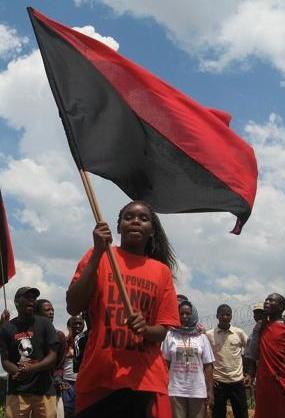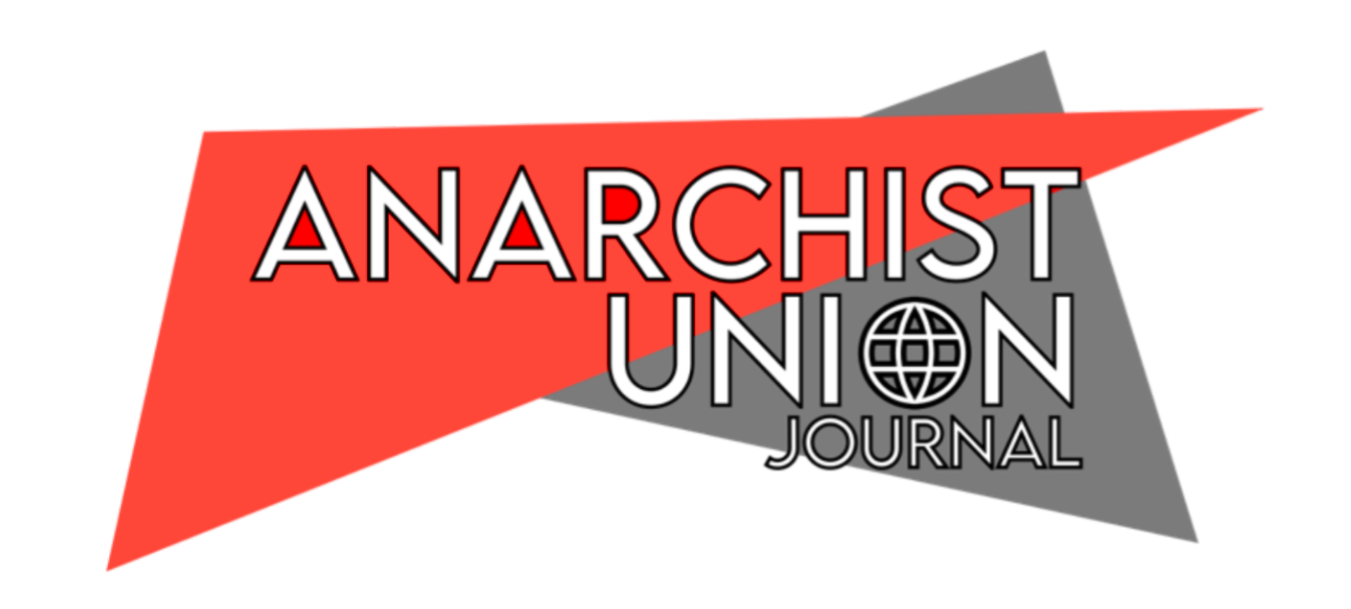
Excerpted from African Anarchism: The History of a Movement by Sam Mbah and I.E. Igariwey.
The full text of this book can be found here.
Une traduction de cet extrait en français est disponible ici.
Perhaps the single most important question in the breakdown of the modern nation state is the “national question,” also called the right to ”self-determination.”1 The debate revolves around the rights of different ethnic groups to autonomous socio-cultural development within given states.
The national question is of particular relevance to Africa given the heterogeneity inside its component states. Many civil conflicts on the continent have been blamed, directly or indirectly, on the absence of homogenous populations. The problem is accentuated by the solutions proffered by both capitalism and state socialism: the one offers individuals and groups liberty without equality; and the other offers equality without liberty.
Common to both systems, however, is a strident appeal to patriotism, a concept that Bakunin contemptuously dismissed as the united interest of the privileged class.2 Hiding behind patriotic appeals, the state in Africa imposes injustices and misery on its subjects, as, of course, it does everywhere else. And patriotism produces the false consciousness—in which individuals act directly against their own self-interest—that allows individuals to condone, indeed support, the injustice and misery caused by the state system. The state, in Bakunin’s words, “restrains, it mutilates, it kills humanity in [its subjects], so that… they shall never raise themselves beyond the level of the citizen to the level of a man.”3
Capitalist democracy and state socialism have both achieved the highest degree of intensified racial and national oppression. Marxist support for the principle of national self-determination is as illusory as is capitalist support of individual freedom.
G.P. Maximoff elucidates:
National rights are not a principle in themselves, but a result of the principle of freedom. No nation or nationality, as a natural association of individuals on the basis of common language, can find suitable conditions for its normal development within the confines of a capitalist environment and state organization. Stronger nations conquer the weaker ones and make every effort to dismember them by means of artificial assimilation. For that reason, national domination is a constant companion of the state and of capitalism.4
The national question in Africa, therefore, is only one component of the principal problem—namely, the attainment of true freedom and equality. The “national question” is thus peripheral to the real interests of Africa’s working class and peasants. As long as capitalism and the state system exist, “self-determination” of nationalities means little. Maximoff notes that without fundamental change, “The right of a nation to ’self-determination’ and to independent sovereign existence is nothing but the right of the national bourgeoisie to the unlimited exploitation of the proletariat.”5
Having said that, anarchism is not in any way opposed to the rights of oppressed nationalities or ethnic groups in Africa or elsewhere. But anarchism stands above the narrow and petty ambitions associated with the quest for national self-determination. Anarchists see freedom, equality, and justice as higher goals than national interests, and the struggle for these higher goals must necessarily be international. The point, of course, is that the state, every state—no matter how nationalist—is an enemy of these goals. Maximoff explains:
Nations which achieve their right to self-determination and which become states, in their turn begin to deny national rights to their own subordinate minorities, to persecute their languages, their desires, and their right to be themselves. In this manner, ‘self- determination’ not only brings the nation concerned none of that internal freedom in which the proletariat is most interested, but also fails to solve the national problem. On the contrary, it becomes a threat to the world, since states must always aim to expand at the expense of their weaker neighbors.6
For that reason, anarchism repudiates any attempt to solve the national question within the context of the state system. Maximoff argues:
A real and full solution will be possible only in conditions of Anarchy, in a communism emanating from the liberty of the individual and achieved by the free association of individuals in communes, of communes in regions, and regions in nations—associations founded in liberty and equality and creating a natural unity in plurality.7
Anarchists demand the liberation of all existing colonies and support struggles for national independence in Africa and around the world as long as they express the will of the people in the nations concerned. However, anarchists also insist that the usefulness of “self-determination” will be very limited as long the state system and capitalism—including Marxist state capitalism-are retained.
The implications of this for Africa are immediately obvious. A viable solution to the myriad of problems posed by the national question in Africa, such as internecine civil conflicts, is realizable only outside the context of the state system. This requires the destruction of the state system, and concerted international solidarity and revolutionary actions. The elimination of the state system is a long-term goal that will be difficult to achieve, but it is definitely preferable to the ongoing mechanistic approach as expressed in the creation of a multiplicity of unviable nation states across the continent.
Citations
- Maximoff, G.P. Program of Anarcho-Syndicalism. Sydney: Monty Miller Press, 1985, p. 46.
- Bakunin, M. Marxism, Freedom and the State. London: Freedom Press, 1984. p. 32.
- Ibid.
- Maximoff, Op. Cit., p. 45.
- Ibid., p. 46.
- Ibid., p.47.
- Ibid.
